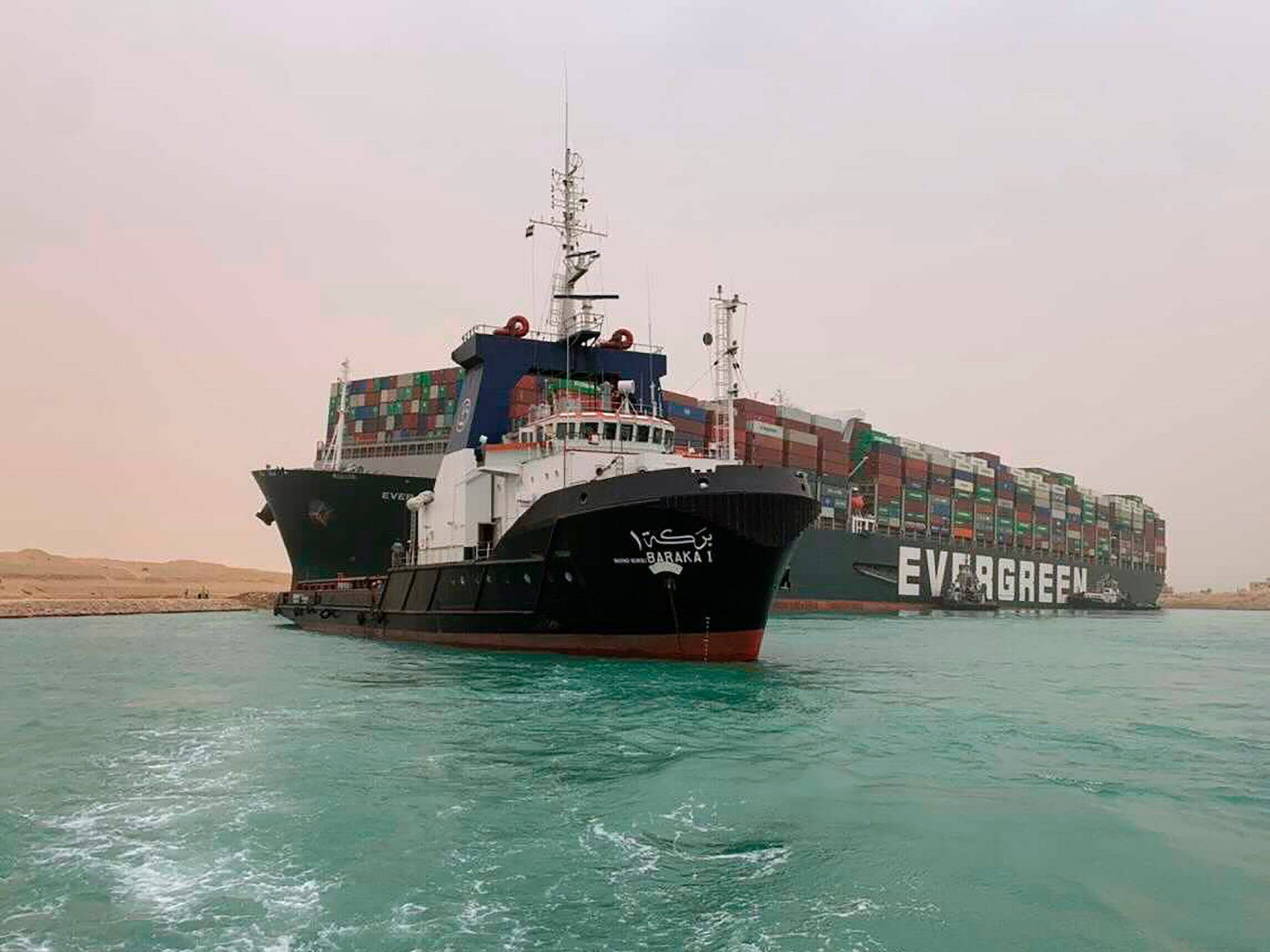
Suez Canal Authority via AP
- Shortages and shipping delays have already put a significant strain on the global supply chain.
- Several companies have already reported losses due to the chip shortage and impact of Texas Freeze.
- The Suez Canal jam is set to push oil and imported goods prices even higher.
- See more stories on Insider's business page.
Since the pandemic started, shortages and shipping delays have threatened to upset the global supply chain, driving up the price of everyday goods.
Several companies including Nike, Honda, and Samsung have already said they have been hampered by supply-chain issues. Now, a massive boat blocking the Suez Canal – the second-biggest shipping channel in the world – threatens to make the crisis even worse.
From California port delays to supply deficits caused by the Texas storm and computer chip shortages, customers face rising prices and limited options as commodities become increasingly difficult to obtain and produce.
Americans may be forced to reckon with a higher cost of living after the pandemic, as demand increases and producers and manufacturers struggle to keep up after reducing their workforce when sales slumped at the onset of the pandemic.
Dwindling supplies and increased demand are forcing companies to push prices higher.
Honda and Toyota announced on Wednesday that they would be stopping production at some plants in North America. The car companies listed an array of reasons why they were forced to limit production, including a deficit of petrochemicals due to the Texas freeze, the semi-conductor shortage, as well as port delays.
In March, Nike reported a lackluster third-quarter revenue that was below analysts' expectations. The company said its sales had been inhibited by the global container shortage, as well as delays at the key California ports. The company's imports have dropped 39%, Nike CEO John Donahoe said during the earnings call.
Samsung told investors on Wednesday that the computer-chip shortage would significantly hurt the business going forward.
Many car and electronic companies that rely on computer chips have already started to feel the pinch, as they delay production and are forced to choose which products to prioritize in manufacturing. Customers have already begun to see the price increase at dealerships.
Grocery stores are also reporting declining imported supplies. In March, Costco told investors it was running out of imported cheese, olive oil, and seafood, as well as several other supplies because of the port delays.
Gas prices have skyrocketed over the past month, as demand rises and OPEC has been slow to boost production in key oil-producing countries.
Hundreds of ships blocked from crossing a narrow canal
The Suez Canal blockage piles onto a strained global supply chain. The jam has become a primary concern and has already started to drive up prices. Oil prices rose as much as 4% on Wednesday, less than 24 hours after the port was jammed.
The waterway is blocked by one of the biggest container ships in the canal, which ran aground on Tuesday morning. The ship is stuck at a right-angle to the passage in the Egyptian canal that connects Europe and Asia.
The ship is blocking hundreds of cargo ships from passing through the canal and forcing them to change their routes. It is unknown when the issue will be resolved or what the long-term impact will look like.
A professor of Finance at Northwestern University Phillip Braun said in a note that, if the port delay persists, the price of goods will continue to rise at an alarming rate.
"Around 10% of global trade shipments pass through the Suez Canal on an annual basis, including crude and refined oil and liquefied natural gas," Braun wrote. "This adds one more issue to the global shipping sector on top of the current pandemic."
Here is what the stranded ship looks like, as seen in an Instagram post by a crew member on a different cargo ship.
On Wednesday afternoon, the shipping company responsible for the trapped vessel said in a public statement the vessel had been partially re-floated and other vessels would be allowed through as soon as it had been towed to a new position.
